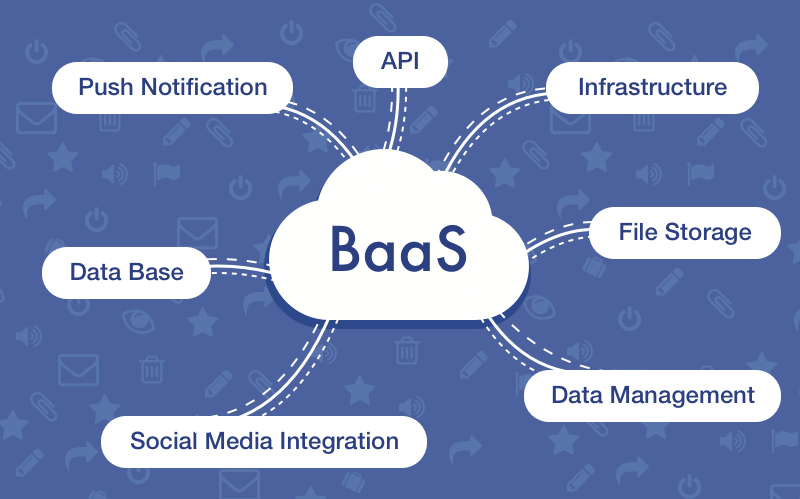Blockchain as a service (BaaS)

Blockchain is a technology on the rise, but the companies that really want to use it may encounter some obstacles: It is new, relatively unknown and its implementation — like any technological change — involves organizational risks. The main problem in practice, however, is that there are far too few experienced blockchain developers on the market. The few that currently exist are also usually very expensive.
Blockchain-as-a-Service BaaS offers solutions that relieve companies of the difficult hurdles of new technology. They can familiarize themselves with Blockchain technology before making any business decisions. Several large IT companies have responded to this lucrative business by developing different platforms to make it easier for customers to implement.
Blockchain-as-a-Service (BaaS)
More and more large companies are interested in applying blockchain technology to their business models. Large companies such as Microsoft, HP, IBM, Oracle and many more have responded by launching Blockchain-as-a-Service BaaS offerings. In the following, three of the larger providers and their service offerings will be presented. Whereby the list should not be regarded as complete under any circumstances.
The Blockchain market is set to grow at a CAGR of 61.5% by 2021, with transparency and immutability as the driving factors behind the exponential growth of the blockchain market. Tech giants have jumped on the bandwagon and are providing BaaS through their built-in platforms and collaborations.
BaaS is set to grow further and become the latest revolution in the fintech industry worldwide, which is why BaaS should be on your radar if you are looking to compete in this universal movement of crypto tech and the mass adoption of blockchain technology as a service.
The “Ethereum Blockchain as a Service” facilitated by Microsoft Azure and ConsenSys will allow for financial services, customers and partners to play, learn, and fail fast in a low cost, ready-made environment. It also allows them to create private, public and consortium-based blockchain environments using industry leading frameworks very quickly, distributing their blockchain products with Azure’s worldwide distributed (private) platform.
Whatever your position is, it seems that the Azure platform has caught the attention of some heavy hitters in the crypto-industry. Surprisingly, a few of them have been strong supporters of decentralization, going so far as to grant users the ability to transact with complete anonymity. Whether or not the Azure Blockchain as a Service (BaaS) platform is successful in its mission, the fact remains that some of the partners chose to collaborate with Microsoft through the Azure platform have the reputation of being hardcore believers in decentralization.









Add comment